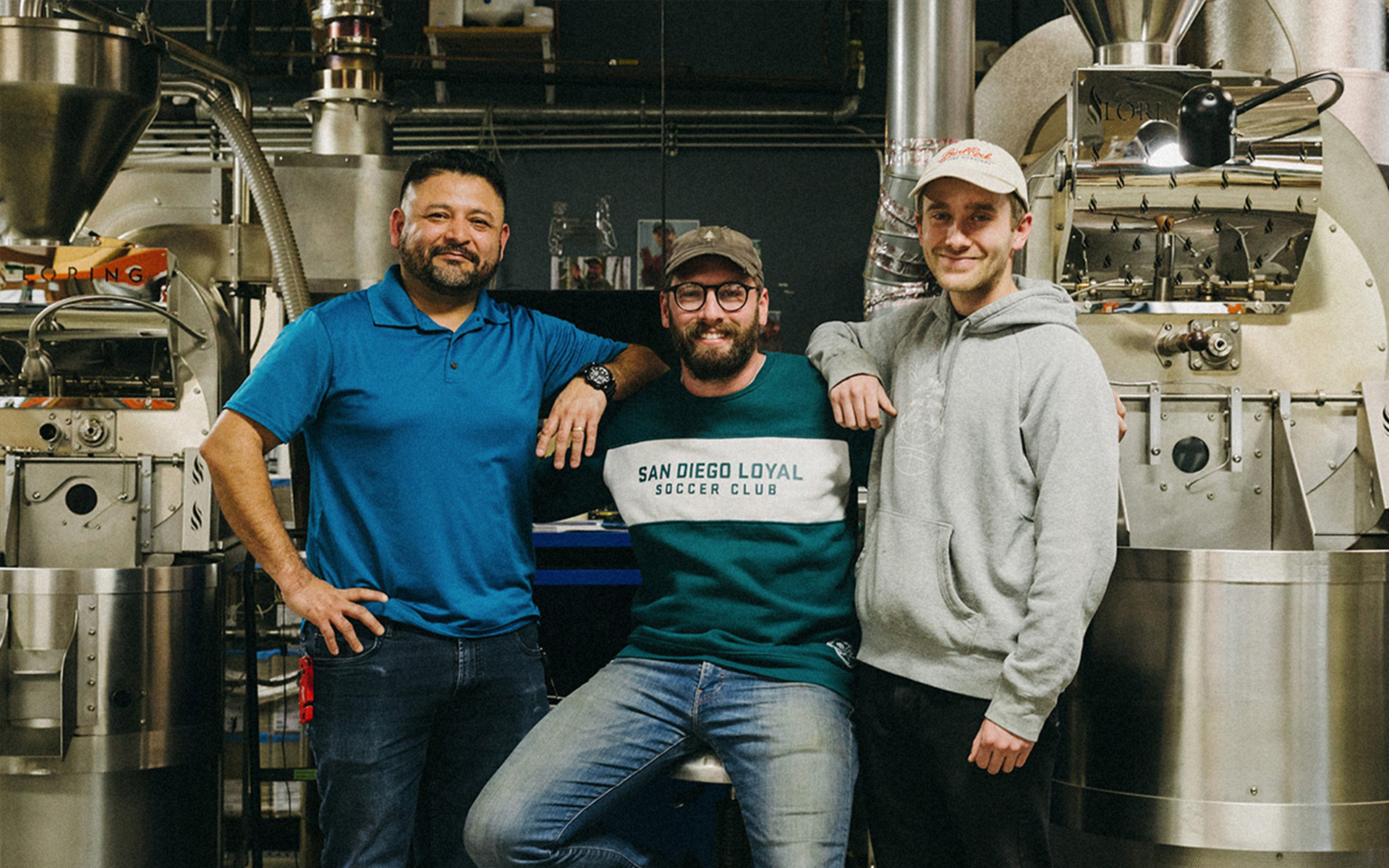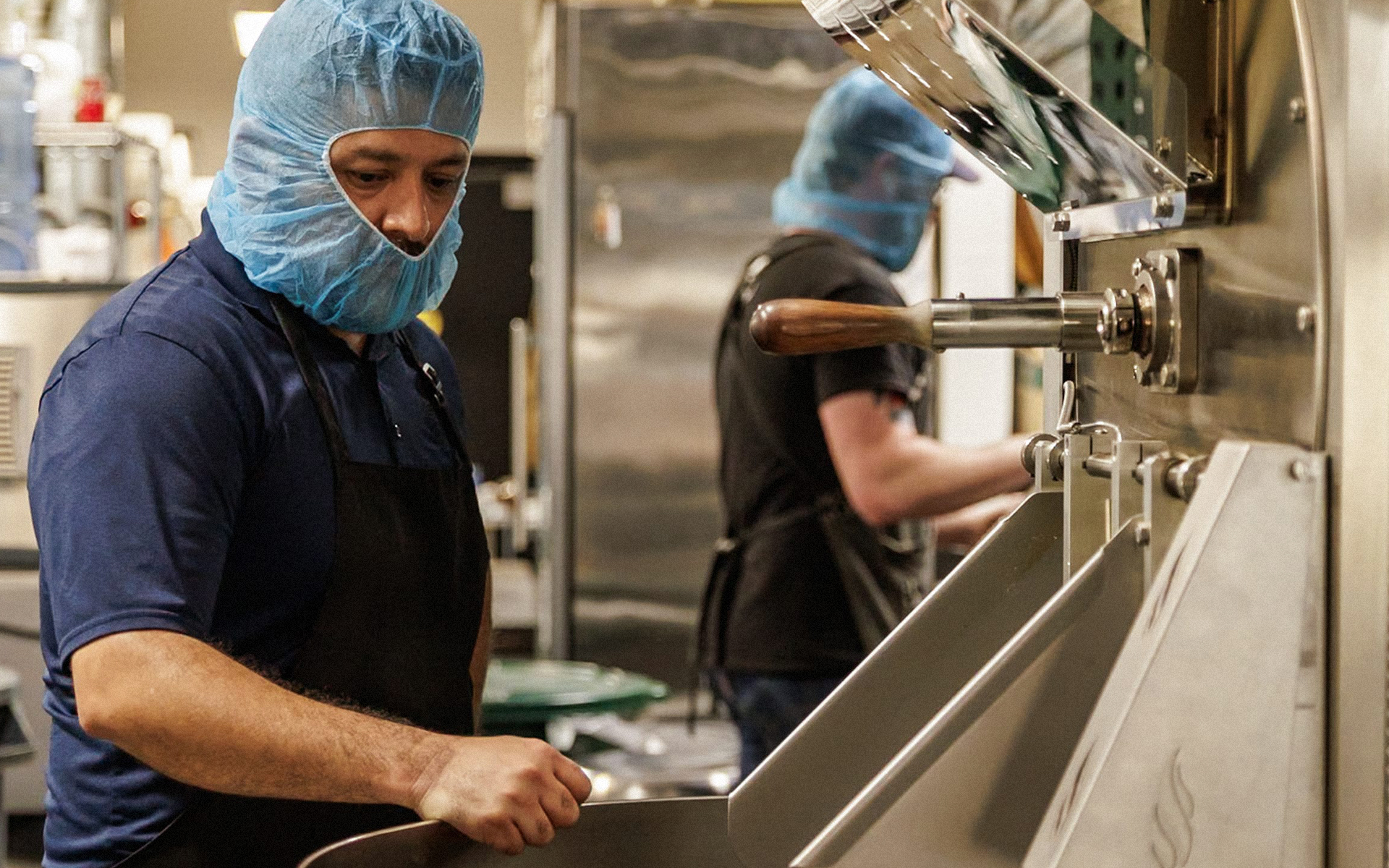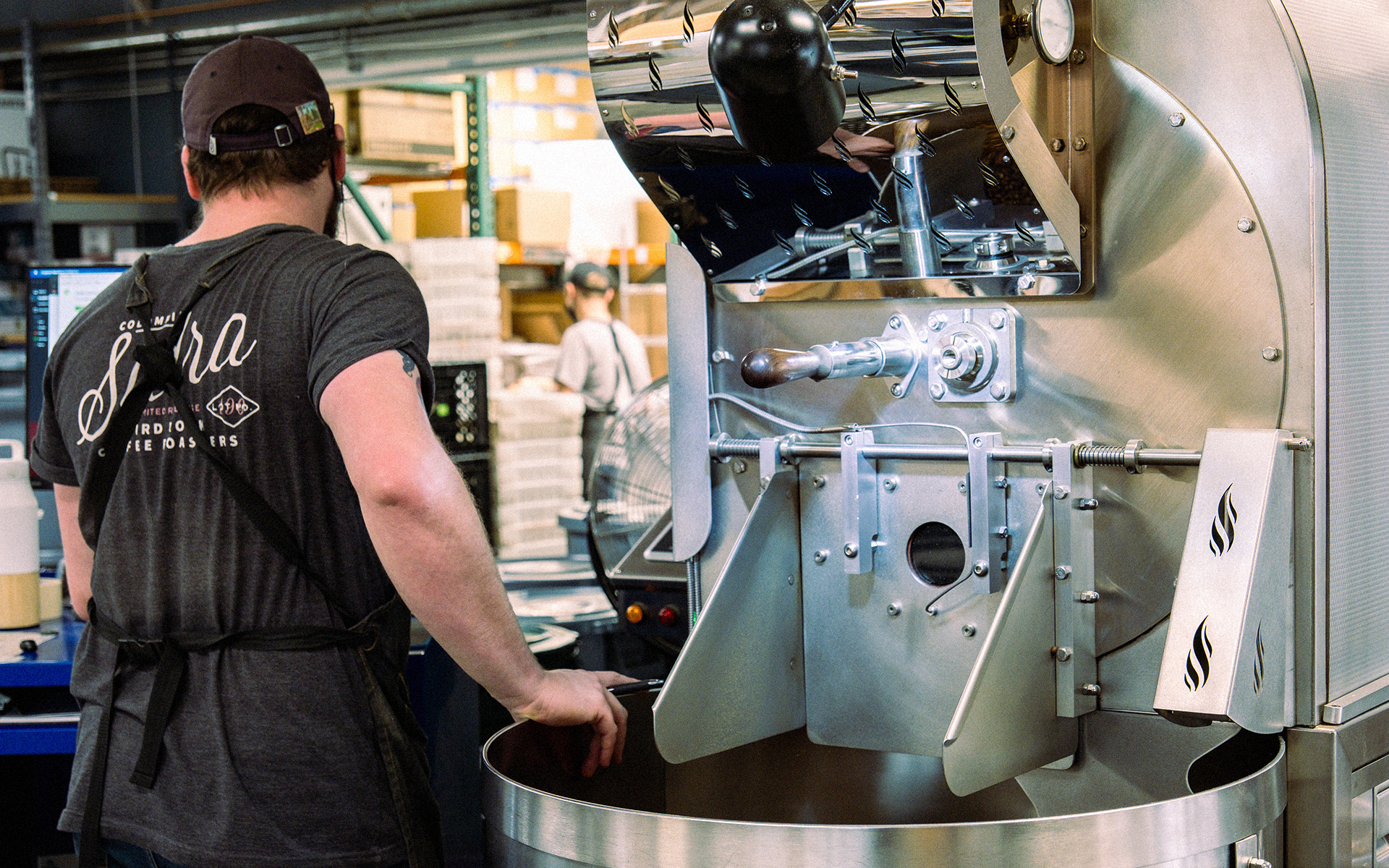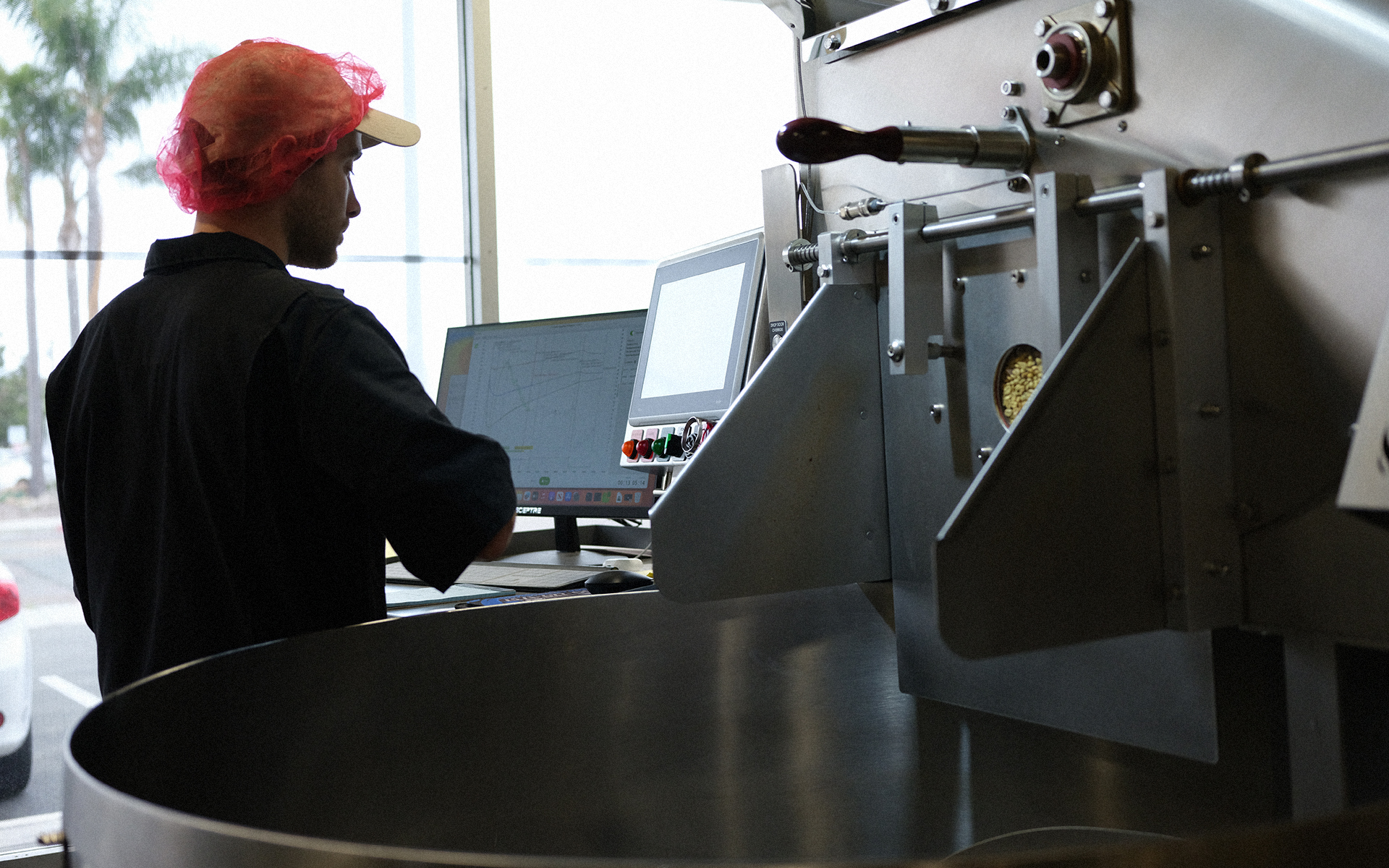Behind the Beans

Behind the Beans: A Chat with Our Expert Roasters
We sat down with our expert roasters, Tony, Zach, and Patrick, to get an inside look at their craft. With creativity, dedication, and a passion for coffee, they bring something special to every roast. Dive in to learn more about the people behind the coffee you love.

First, we'll talk with Tony. One of the original hires of Bird Rock Coffee Roasters.
Where are you from, and how long have you been with BRCR?
I'm originally from Guerrero on the Mexican Pacific coast. I came to San Diego when I was 12 and have been here since. I consider myself a San Diegan by now! I have been in the coffee industry since 1999, and a roaster with Bird Rock Coffee since its opening in 2006.
How did you get started in coffee roasting?
I got started into roasting out of necessity. I started doing deliveries, then deliveries and production, and then production and roasting. My very first roasting batch was done while a former employer walked me through it over the phone. I can confidently say that I don't need to be given directions while I roast anymore, or do I?
What's the most challenging aspect of coffee roasting?
I feel the most challenging part about roasting is achieving consistency and maintaining focus throughout the whole day with all of the distractions we have around us, such as phones, blending, staff/me asking questions, deliveries, and more. It is very easy to get distracted and miss an adjustment, especially during development, that can potentially alter the flavor of that coffee.
What's your favorite drink, coffee blend, or single-origin coffee?
Black drip for me. My favorite would have to be the Sudan Rume Natural from Granja La Esperanza in Colombia. I particularly appreciate the unique lavender note we have gotten in the past, as it reminds me of my childhood when my mom used Fabuloso to clean. I know, weird! Drinking a cleaner that's how my mind works! The advice I'd give to someone interested in roasting is to stay in school; just kidding! Be prepared, as the job is both mentally and physically challenging and not very glamorous, but it is very rewarding. The feeling you get from being a part of crafting a drink that gives so many people joy, usually first thing in the morning, PRICELESS!

Next, we interviewed Zach.
Where are you from and how long have you been with BRCR?
I grew up in North Carolina, and I lived overseas for a number of years, doing humanitarian work. After meeting my wife, we returned to the States and lived in Texas. We moved to San Diego several years later to be closer to family. I started working here a few days after I moved to California from Texas. After previously meeting Jeff and Martiza at the 2019 Good Food Awards, where we both received a GFA medal for coffee, I reached out to Tony about potentially getting a job with BRCR a few months before moving to SD. I interviewed Tony the day after we arrived in California, and the rest is history.
How did you get started in coffee roasting?
I was a barista for a number of years, and during that time, I rubbed shoulders with a few different coffee roasters. In conversation with them, I realized I wanted to become a coffee wizard. So, I applied to a local roastery's cafe and told them off the bat I would like to roast. After a few months, a position opened up, and I accepted it wholeheartedly. I roasted there for nearly three years before moving to California and BRCR. Once at Bird Rock, I started out as a production assistant. Over time, I worked my way into the Production Assistant Manager role, and when a roasting position opened up, I transitioned back into roasting.
What's the most challenging aspect of coffee roasting?
Coffee roasting is a physical challenge, yes, but it is much more of a mental craft. A roaster needs to be able to pay attention to what is going on in 2the machine and use the data we have to make informed decisions on how to navigate the roasting process. Executing a quality roast takes a lot of focus, time management, and multitasking. Coffee isn't a static product, so you cannot treat each profile or lot of coffee the same. Yes, roasting principles are essential to follow, but coffee roasting is not a one-size-fits-all situation if you want to produce the best coffee you can. Over time, you begin to learn the tendencies of the lots you roast and build an almost relational familiarity with each one.
Another aspect I find fascinatingly difficult is the impact on cup flavor from a few seconds difference or a few tenths of a degree variance between roasts. For example, two roasts can be identical in every way, but one was roasted five seconds longer, and on the cupping table, there is a clear difference in how the coffees taste. Coffee can be a game of fine margins.
What's your favorite drink, coffee blend, or single-origin coffee?
The one in front of me!
In all seriousness, I find Colombian coffees to be incredibly consistent and versatile. If I get coffee and see there are Colombian lots, I tend to gravitate towards them. Of our current lineup, though, I am thoroughly enjoying the washed Peñaherrera from Ecuador.
What advice would you give to someone interested in becoming a coffee roaster?
Be curious about food! Mindfully taste everything you can (i.e. food and drink) and make a mental library of flavors to use as reference. This will immeasurably help you understand coffee flavors and the differences between various roasts, roasters, and origins. Make coffee at home and try coffee out. Cup coffee whenever you can. Use the vast wealth of coffee knowledge your local roasters and the internet's coffee connoisseurs may have. Don't be pretentious! There are too many gatekeepers in coffee. Be curious and try coffee you usually wouldn't! If you can access a roasting machine, try experimenting with different roast techniques, times, and origins, and CUP YOUR COFFEE. Ask for feedback from friends, family, and even roasters. Again, I say, BE CURIOUS!

Last but not least, you'll hear from Pat!
Where are you from and how long have you been with BRCR?
Hey Emma, I'm originally from Philadelphia. I moved to San Diego on New Year's Day of 2020, a few months before COVID started. Although there are many differences between the East and the West Coast, I feel like I have adapted well, and I consider San Diego my home now. Living here has been amazing, and I love every day of it. The weather is a lot more enjoyable here too. I started working for BRCR in the fall of September 2021. I have been blessed to have had the chance to do a multitude of different roles while working here. I made deliveries to cafes, brewed cold brew to supply our cafes with cold brew kegs, made syrups in the R&D lab and now, for the past two years, I have been an assistant roaster. Roasting has been awesome. Not only do I get to learn so much about coffee, but I also get to drink some of the best coffee ever. Working with Tony and Zach has been a pleasure.
How did you get started in coffee roasting?
I got started in coffee roasting in Philadelphia for a large company there. Seeing the differences from there to here has been interesting but has only furthered my coffee knowledge. I knew I was interested in continuing roasting coffee when I arrived at BRCR. While here, I have had the opportunity to roast on three different-sized machines. I am not a master yet, but it is a work in progress, and I love embracing the challenge.
What is the most challenging aspect of coffee roasting?
The most challenging aspect of coffee roasting for me would be setting new profiles for new coffee lots that we offer. Especially geisha lots or one of our Blue Label coffees we offer for retail. Also, after we set these profiles, we must evaluate what we have roasted with a sensory evaluation. We taste test and smell different aromas we get from different roasts. It can be tricky for me to pinpoint changes we should make to the roasting profile based on certain flavors and smells. But I am definitely picking up on trends and the vast vocabulary that comes with roasting and cupping.
What’s your favorite drink, coffee blend, or single-origin coffee?
My favorite drink right now is a cappuccino, and I like a simple black coffee.. My favorite single origin right now would have to be our Colombia El Chaferote Pink Bourbon. My favorite single Blue Label we have offered would have to be a Cerro Azul Geisha.
What advice would you give to someone interested in becoming a coffee roaster?
I would advise someone interested in becoming a coffee roaster to develop your tasting pallet so you can evaluate tasting notes and differences in batches of the same coffee.

Posted by Bird Rock Coffee Roasters on Aug 28th 2024

